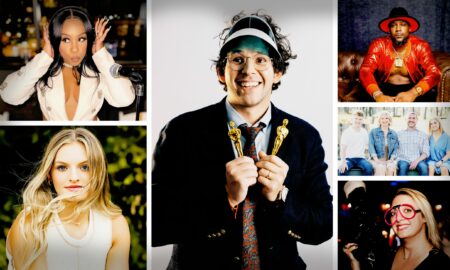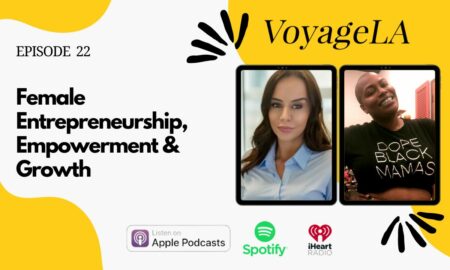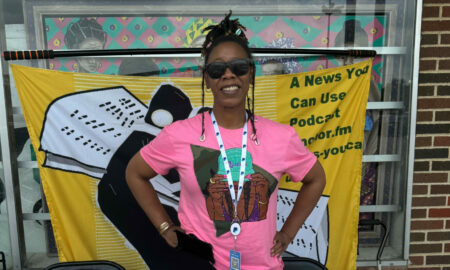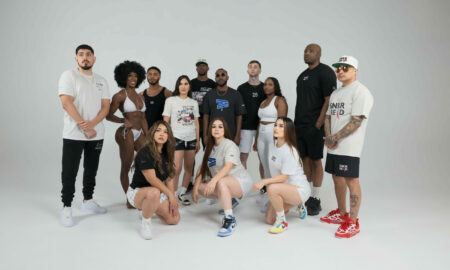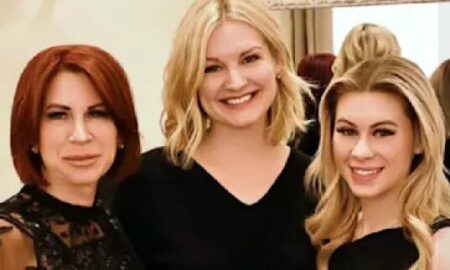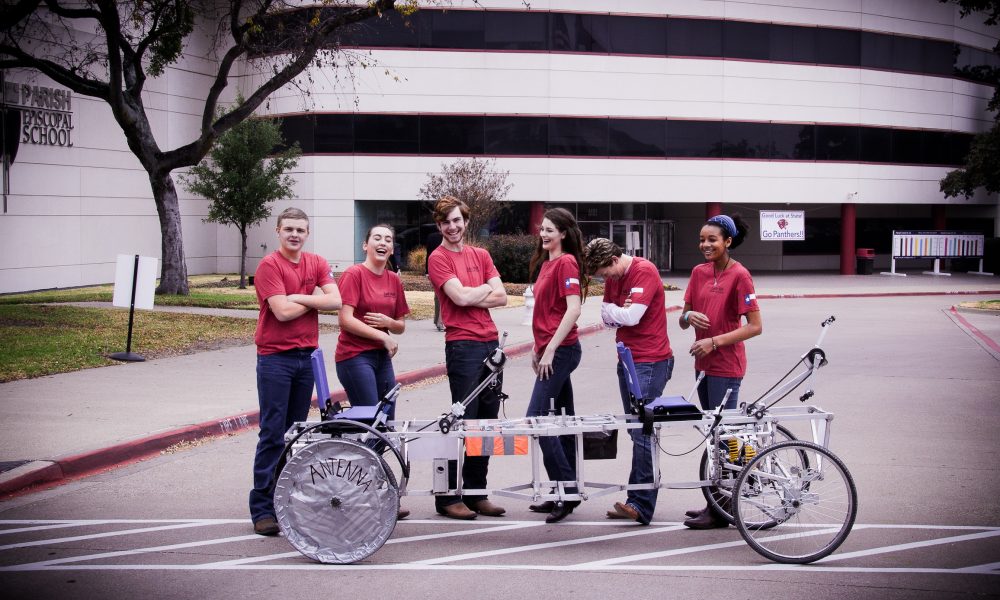

Today we’d like to introduce you to Jenn Makins.
Thanks for sharing your story with us Jenn. So, let’s start at the beginning and we can move on from there.
In some respects, I feel as if I fell into teaching, in others, I wonder if I was destined to end up here all along.
Before computers, video games, and cell phones invaded homes kids played. My friends and I played tag on our bicycles, explored the neighborhood creek bed, and built forts that snaked through our mother’s living rooms. On those occasions, when parental mandate dictated, I “entertain” my little sister; more often than not, I hauled out workbooks from the previous school year and transformed our playroom into a classroom.
Years later, I was off Texas A&M University to study political science at the Bush School for Government and Public Service. In high school, I had become fascinated with our space program. A dewy-eyed optimistic 18-year old, I believed that an undergraduate degree in political science would morph me into the Congressional advocate NASA had been missing. My tenure as a political science student lasted a full three semesters. A semester in the business school followed.
As my sophomore year drew to a close, it was clear business school was not for me. I hated my classes. I could not “see” a real job in the business world that was interesting. At 19, I did not know what I wanted, but I knew what I didn’t. I remember sitting down one afternoon with the A & M undergraduate catalog. I literally began tearing majors out of the book. I had been in school for two years with only two to go on my “mom and dad scholarship.” I tore majors from the catalog that led to careers I did not understand or was afraid of. I tore out majors that required extensive study of foreign language because in high school I had become convinced I wasn’t good at them. I tore out majors that required advanced math because I need help understanding advanced math and at the time thought asking for help was a sign of weakness. I tore out majors that required O-chem or physics because those subjects were hard and I had not yet learned to love overcoming hard things.
Chunks of the catalog lay strewn across the floor of my apartment. I thumbed through the catalog and found a description for the Outdoor Education Institute. Pay dirt. I loved being outside. I volunteered as a basketball and soccer coach while in high school and loved it! I pulled out a legal pad and began to audit my previous course work to assess which classes would count toward what would ultimately be a Bachelor’s of Science in Kinesiology with an emphasis in outdoor education.
When I finished my undergraduate degree and started my teaching career, STEM, design thinking, and makerspaces were not yet prevalent in schools. Upon graduation, I joined the P.E. and Classroom of the Earth faculty at Good Shepherd Episcopal School. I loved coaching and guiding student trips, but did not find myself as intellectually challenged by my career as I had hoped. At the time, the school had a science lab available to its lower school classes but was under-utilized. Over a weekend, I drafted an unsolicited proposal outlining how the school might make better use of the lab with a dedicated teacher noting the powerful synergy between the science learned in the lab with the science the students experienced on their pack trips. The administration loved the idea. It was the birth of the school’s lower school science program and my first experience launching and cultivating a program.
After four years at Good Shepherd life took me away from teaching and Dallas. I spent two years in Washington, D.C. where I earned a Masters of the Arts in International Science & Technology Policy, special emphasis in Space Policy, from the Elliot School of International Affairs at The George Washington University. My teenage dream of being part of the space program while dormant had not dissipated. I moved to D.C. with the goal of working for NASA. Six months and a very interesting lunch meeting turned interview later, I was working at NASA Headquarters, not as a policy wonk, but as the Education Associate for the Exploration Systems Mission Directorate.
In early 2009, I had a call from Parish Episcopal School. The Lower School Division Head had gotten my name from a former colleague at a networking breakfast; she was in need of a third-grade science teacher and asked if I had interest in returning to Dallas. I loved Washington but was ready to be closer to family.
Overall, has it been relatively smooth? If not, what were some of the struggles along the way?
Things have definitely not always gone as planned. My personal journey that leads to teaching had numerous twists and turns, seasons of doubt and fear of failure. In the last 13 years of teaching, I have experienced lots of failures. Some highlights include standing with my students at our first FIRST LEGO League competition and watching after months of work and substantial financial investment by our school, as our robot did nothing, performed no tasks, and scored no points. I have had rockets misfire off the launch pad in front of parents and administration after weeks of work. There is also the time the wheels literally fell off our rover on live NASA TV, again, after months of work and thousands of dollars spent.
The salve in each of these circumstances and the ones undoubtedly yet to come is that risk and failure are a part of authentic learning experiences. We need to fail so we know how to succeed. Big hairy audacious goals seldom come to fruition with first attempts. Students need safe ways to practice failing fast and up. The year after the rover wheels fell off in front of an international audience I laughed and cried as I watched four of those students gave a TEDx SMU talk titled “Daunted & Lost? Roll On!” about their experience and what they learned. My eyes may have “leaked” again later when we learned that NASA Marshall’s Education team uses our TEDx talk to inspire others.
Parish Episcopal School – what should we know? What do you guys do best? What sets you apart from the competition?
One of the unique things about the Parish community is that we are emboldened by our entrepreneurial institutional DNA. We believe in testing new approaches to engage our students in authentic learning experiences. We see schools as transformative learning hubs responsible for teaching students the skills they will need to lead in a complex global society. ParishSTEM, one of Parish Episcopal School’s three signature programs, is a key piece of that work. As Director of STEM Education, I collaborate with the administration to set the 30,000 ft. vision for the program so that it aligns with the mission and vision of the school. I am also responsible for a number of outreach/service partnerships that are extensions of ParishSTEM.
Robotics was our first foray into STEM programming and was driven by student passion. When I volunteered to sponsor our first FIRST LEGO League (FLL) team, I could have never imagined that 8 years later I would be responsible for leading a comprehensive and embedded program, touching 1,100 students across grades PreK – 12 supported (come August) by 20,000 sq. ft. of design and makerspace. Our youngest learners regularly visit the Beasley STEM Center on our Hillcrest Campus, which houses a technology lab with green screen, the Exploratorium, the Fleeger Family teaching kitchen, Nausler Family Garden, and hydroponic green shed. Middle and Upper School students may choose from a robust suite of STEM electives most of which call our 4,000 sq. ft. Design Den home.
Perhaps our most well-known STEM elective is Parish Rover. 2018 was our fifth year competing in NASA’s Human Exploration Rover Challenge. Begun in 1994, this competition is open to 50 high school and 50 university teams from around the world. The challenge is to design and build a two-person pedal-powered vehicle to traverse a half-mile obstacle course designed to simulate the lunar and Martian terrain. Additionally, rovers must fit in a 5 ft. cubic volume. Each year, the course destroys rovers. Simply surviving the course with an intact rover is a feat! Placing in the top 10 is fantastic, a top 3 finish, extraordinary. A handful of design awards also recognize outstanding team achievement. I am extremely fortunate to co-coach this team with two of the best teachers with whom I have had the privilege to work, Dave Cribbs and Fallon Ahearn. We are incredibly proud of our students’ hard work, perseverance, and resilience. Three of the last four years, they are the recipients of the Neil Armstrong Award for Best Design and for three consecutive years have received the Best Report Award. At present, Parish is the only high school in the state of Texas with a rover team.
We also highly value our tenet of service. To raise impactful young people you must model community relevance and stewardship. Service learning is an integral part of school life across all disciplines and through all grades. ParishSTEM annually partners with the Perot Museum supporting FLL robotics competitions for the North Texas Region. Eight qualifiers and four championships later we have helped provide STEM opportunities for approximately 3,300 FLL participants. In annual partnership with Texas Instruments, we have hosted four STEM Summer Outreach Academies, providing weeklong immersive STEM experiences for approximately 62 Middle School students. Our boldest ParishSTEM service endeavor to date has been the launch of MAKERplay. MAKERplay is our hospital outreach program that brings the joy of learning, creativity, and collaboration to chronically ill children enduring extended hospital stays. We have spent the last two years working with Children’s Medical Center Dallas, Medical City Children’s Hospital, and the Dallas Chapter of Dec My Room to provide pediatric patients with engaging hands-on activity kits. Deploying to hospitals in the fall is our MAKERplay Creation Station cart housing a 3D printer, Cricket vinyl cutter, EV3 LEGO robotics, and virtual reality headset affording patients even richer learning experiences. In addition, coming soon is our unique social educational web platform (patent pending) connecting patients across hospitals, cities, states and possibly the country around making experiences. Parish Episcopal is grateful to Theodore and Beulah Beasley Foundation, The Moody Foundation, Gaston Foundation, Carmody Foundation, Transamerica Corporation and Texas Instruments for support of this extraordinary project.
What is “success” or “successful” for you?
I have a sign that hangs over a door in our design space for the students to see that says “the only place success comes before work is in the dictionary.”
Pricing:
- Tuition $11,070 – $29,435
Contact Info:
- Address: Parish Episcopal School
4101 Sigma Rd
Dallas, TX 75244 - Website: www.parishepiscopal.org
- Phone: 972-239-8011
- Instagram: parishepiscopalschool
- Facebook: Parish Episcopal School
- Twitter: @parishepiscopal







 Image Credit:
Image Credit:
Wiley Williams, NASA Marshall Flicker
Getting in touch: VoyageDallas is built on recommendations from the community; it’s how we uncover hidden gems, so if you know someone who deserves recognition please let us know here.

